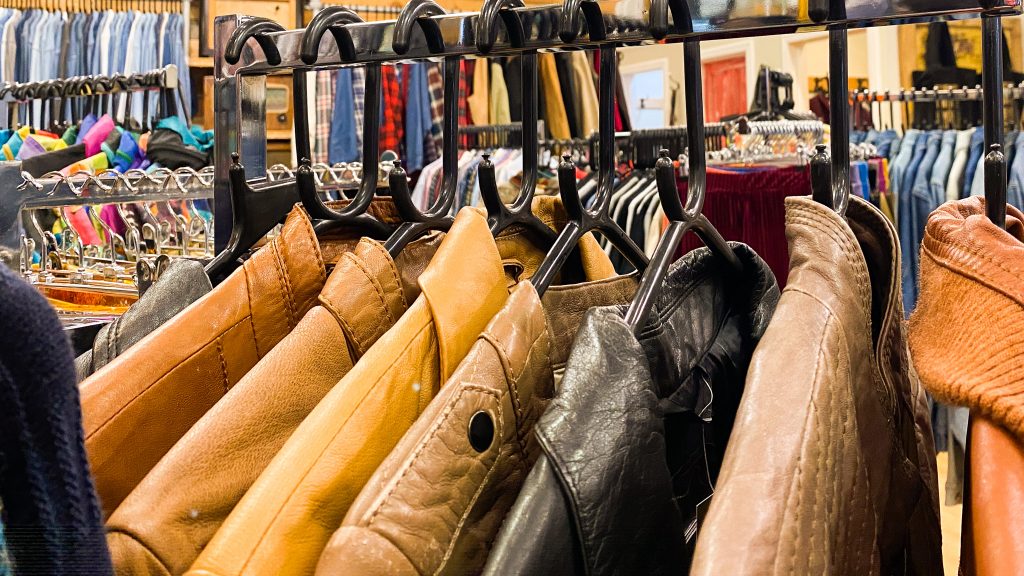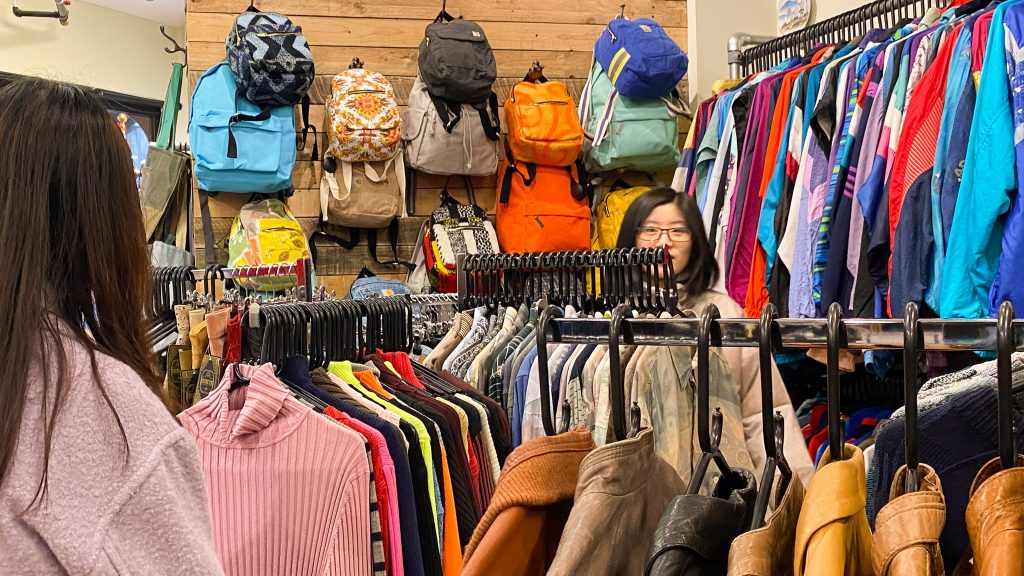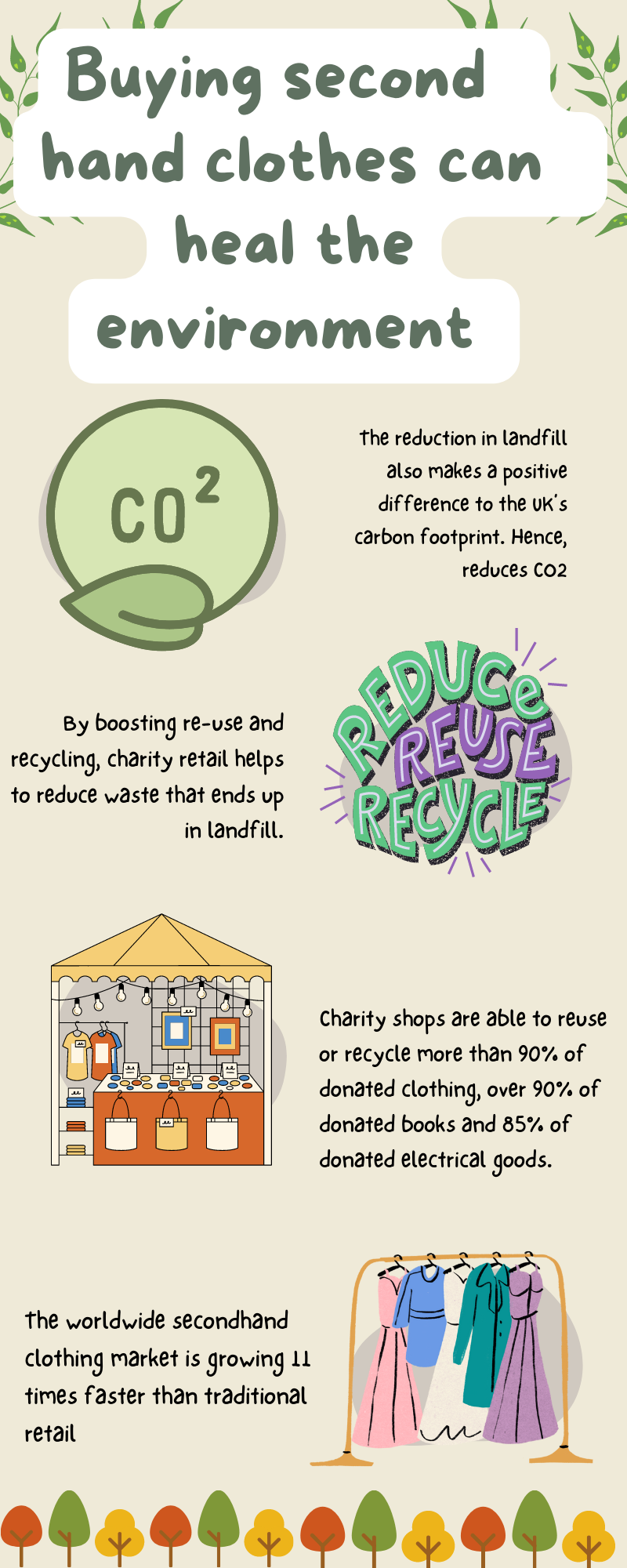As secondhand shopping is increasing rapidly amongst people, how accessible thrifting really is in Cardiff?

The second week of February is celebrated as Secondhand Wardrobe Week to promote shopping for pre loved clothes in a sustainable manner.
Fast fashion refers to clothes produced in large numbers which are quick, cheap and easy to find. In Cardiff City Centre, there are no charity shops whereas shops that caters to fast fashion are easily available.
Dyeana, a student from Cardiff University says, “It is harder to find secondhand clothes, for example H&M is just five minutes away from here.”
Stores that delivers fast fashion products is more convenient to find but its production and disposal is concerning to the environment. Toxic dyes and chemicals used in these clothes contaminate clean water.
Gareth Natale, owner of a thrift store says, “It is simply unsustainable from a thrift store’s business perspective. If fast fashion continues as it has been even more of a percentage of the clothes donated will be fast fashion, almost all of this ends up being discarded as no one wants it.”
“The majority of clothing in people’s wardrobe is fast fashion and thus the majority of clothing that gets received by charities and other organisations is fast fashion. The way to rebel against fast fashion would be to simply buy less of it in the future.”

Thrift shopping promotes re using and repairing of clothes which attracts many people, especially the younger generation who understands the value of buying secondhand clothes and advocate for sustainability.
“My goal is to help people understand the value of buying second hand and create a retail experience that takes the best parts of buying both second hand and new and creates an entirely new way of shopping for clothes,” says Gareth.
According to Carbon Literacy Project, “The fashion industry is the second-largest industrial polluter, accounting for 10% of global pollution ranking higher than emissions from air travel.”
Gareth says, “Buying second hand tends to be cheaper, it’s more fun, no exploitative labour is used and it is better for the environment.”

Some big labels like Chanel and Dior often donate their last year collections or pieces with a slight defect to charity and secondhand stores.
It was reported in 2019 that British shoppers are buying lesser new clothes and are giving secondhand clothes a shot.
Tom from Cardiff says, “My shirt, £15 Ralph Lauren and pants £13. I have no reason to not shop at a charity shop.”
Younger people in Wales finds shopping at thrift stores, offline and online, more fun as it gives them an opportunity to shop and wear unique pieces. They are taking tiny steps to live a sustainable life.
